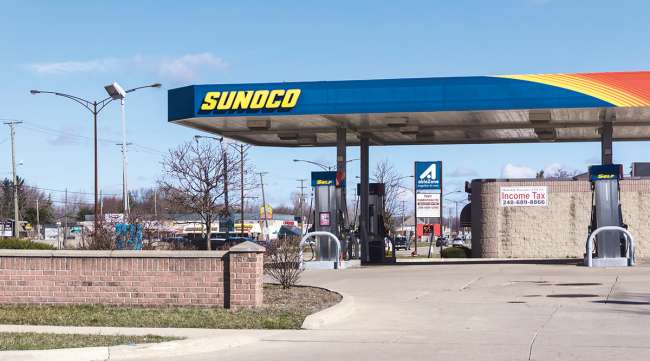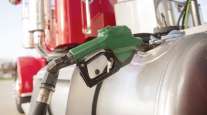Staff Reporter
States Take Action as COVID-19 Chokes Revenue Streams

[Ensure you have all the info you need in these unprecedented times. Subscribe now.]
Many state transportation agencies continue to develop revenue forecasts — and rework them — to determine how much money they can expect to lose in fuel tax revenue, tolls and transit fares in the wake of the coronavirus pandemic.
But some have been tactical and passed legislation designed to help offset revenue shortfalls:
Maine
Maine voters approved a $105 million transportation bond measure by a margin of 78% in July. The Revenue Forecasting Committee estimates a Highway Fund drop of approximately $30 million in the current fiscal year followed by a drop of another $30 million in the next biennium.

Van Note
Bruce Van Note, commissioner of the Maine Department of Transportation, said the bond measure allowed the agency to put out contracts for work, allowing it to accelerate 10 projects representing $33 million. Van Note described the time when the pandemic was striking across the country this spring as a “strategic inflection point.” MaineDOT had the choice to “contract and seize up” or respond to the reality of lower traffic volumes, he said.
“[The bond measure will] allow us to have an OK year,” Van Note told Transport Topics. “Next year, if we don’t get another bond of very significant size, or Congress doesn’t act, next year’s going to be a skinny, skinny year.”
New Jersey
The New Jersey Department of the Treasury announced a gas tax increase of 9.3 cents per gallon Aug. 28 to offset declines in fuel consumption.
Therefore, effective Oct. 1, New Jersey’s fuel tax rates increased to 44.2 cents per gallon for diesel and 40.2 cents per gallon for gasoline. On top of these rates is the existing motor fuels tax rate, which is 13.5 cents per gallon for diesel and 10.5 cents per gallon for gasoline.
The new total tax rates are 57.7 cents per gallon for diesel and 50.7 cents per gallon for gasoline.

Muoio
“Highway fuels consumption took a significant hit in 2020 because of the economic downturn caused by the COVID-19 pandemic,” New Jersey Treasurer Elizabeth Maher Muoio said.
Teleworking routines and limited leisure activities, both results of the pandemic, were factors in the drop in fuel consumption.
Diesel consumption fell 16.5% while gasoline consumption dropped 38.7% from March to May, according to the New Jersey Department of the Treasury.
RELATED: Trucking Offered Measure of Stability in Diesel Revenue as Pandemic Caused Gas Tax Revenue to Tank
Richard Auxier, senior policy associate at the Tax Policy Center, said fuel taxes can be politically challenging. He said it’s hard to think of a reason the federal fuel tax rate hasn’t been increased other than politics. (The federal tax for diesel has been 24.4 cents a gallon and for gasoline 18.4 cents a gallon since 1993.)
“While the federal rate should probably be higher, and raising it would make things better, it’s not a panacea for state and local transportation budgets,” Auxier said, because so much of that spending is still on the states and localities.
Wyoming
Wyoming has yet to enact revenue-boosting legislation, but at the direction of the state Legislature, its Department of Transportation has been studying alternative revenue sources even before the pandemic hit.

Reiner
WYDOT Director Luke Reiner said the state contends with financial issues associated with the pandemic as well as shifts in energy consumption. Certain industries in the state, such as coal, oil and natural gas, have experienced pressure, contributing to budget challenges, he said.
“This whole quest for additional revenue is key,” Reiner said. “In terms of being a mineral extraction state, it’s no secret that we are working through some significant budget issues. That, in concert with COVID, is shining a lot of light on the budget.”
He added: “The decision for our lawmakers is what’s the road ahead? It’s a work in progress.”
Want more news? Listen to today's daily briefing:
Subscribe: Apple Podcasts | Spotify | Amazon Alexa | Google Assistant | More




